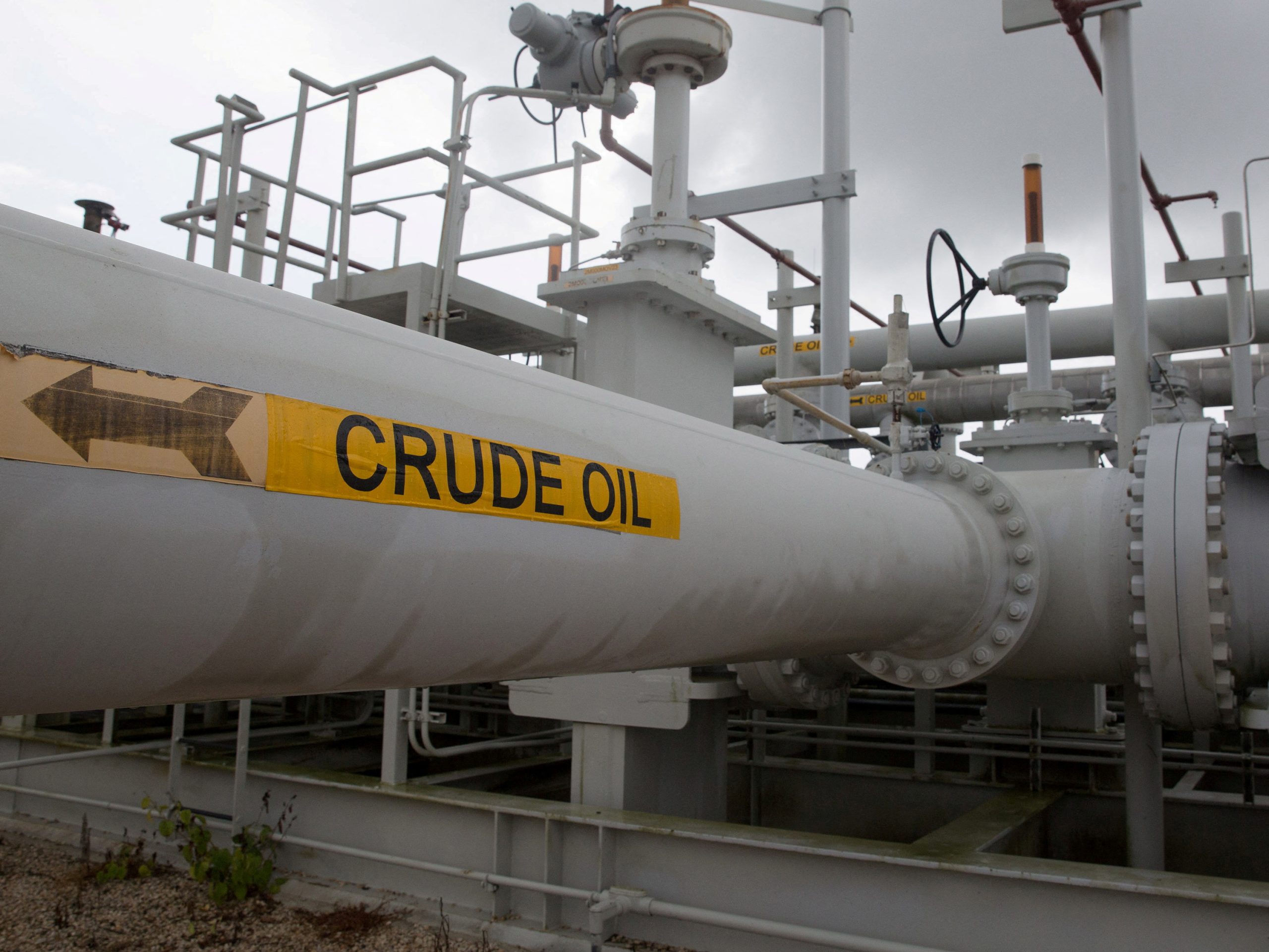Crude Oil Losses Fall Dramatically in 2023
Nigeria’s crude oil theft has seen a significant drop, according to the Nigeria Extractive Industries Transparency Initiative (NEITI). The latest report, covering 2022 and 2023, reveals that about 7.68 million barrels of crude oil were either stolen or lost in 2023. This marks a 79% decrease from the 36.69 million barrels stolen or lost in 2022.
The NEITI report, released last Thursday, highlights the progress made in curbing crude oil theft in the country. Despite this decline, the losses remain substantial.
Join our WhatsApp ChannelAddressing the public during the report’s presentation, George Akume, Secretary to the Government of the Federation, emphasised, “This reduction is significant, but we still have much work to do to eliminate theft entirely.”
Production and Revenue Trends
The report also provides an overview of crude oil production over the past two years. In 2022, Nigeria’s fiscalised crude oil production stood at 490.945 million barrels, an 11% drop from the 556.130 million barrels produced in 2021. However, in 2023, production increased by 9.5%, with 537.571 million barrels produced.
Commenting on the fluctuations, Orji Ogbonnaya Orji, Executive Secretary of NEITI, said, “Nigeria’s crude oil production is slowly recovering, but we need to ensure consistency and stability in the sector. It’s crucial that we capitalise on this growth.”
The report also noted a 10-year trend, highlighting that the highest crude oil production volume, 798.542 million barrels, was recorded in 2014, while the lowest, 490.945 million barrels, occurred in 2022.
Crude Oil Revenue Breakdown
In terms of revenue, the oil and gas sector generated $15.549 billion in 2022 from material companies. This amount grew in 2023, with $21.415 billion generated. Non-material companies contributed $695.604 million in 2022 and $1.238 billion in 2023. These figures are part of a broader trend of increasing revenue for the Nigerian government from its crude oil resources.
According to Akume, “The revenues generated from crude oil remain a critical part of Nigeria’s economy. However, we must ensure that these funds are managed transparently and used for the benefit of all Nigerians.”
READ ALSO: Military Destroys 71 Illegal Refineries, Seizes 788,400 Litres Of Stolen Crude Oil
The report also pointed out that Nigeria’s oil and gas sector owes over $6.071 billion and ₦66.4 billion to the federal government, as of June 2024. The outstanding debts include various taxes and royalties that have yet to be collected.
Fuel Importation and Under-Recovery Costs
The NEITI report also highlighted the volume of fuel importation, revealing that 23.54 billion litres of premium motor spirit (petrol) were imported in 2022, compared to 20.28 billion liters in 2023. This decline in fuel imports is largely attributed to reduced consumption patterns and efforts to improve local refining capacity.
However, the cost of under-recovery (price differentials) remains a significant financial burden on the country. Between 2006 and 2023, a total of ₦15.87 trillion was claimed in under-recovery costs, with the highest amount, ₦4.714 trillion, recorded in 2022.
NEITI’s Executive Secretary, Orji, expressed concern over these figures. “These under-recovery costs are unsustainable in the long run. We need to explore other strategies to manage fuel prices and reduce the strain on our national finances,” he noted.
The Role of NEITI in Crude Oil Transparency
During the report presentation, Akume reiterated the federal government’s commitment to the Extractive Industries Transparency Initiative (EITI), which NEITI implements in Nigeria. “The principles of transparency in crude oil management are essential to fostering public trust,” he stated. “NEITI plays a vital role in ensuring that Nigerians are fully aware of how their commonwealth is being managed.”
Akume further emphasised that the findings from NEITI’s reports are guiding reforms aimed at improving transparency in the crude oil sector. “Without transparency, the risks of corruption and inefficiency increase. We are committed to closing these gaps,” he added.
Orji echoed this sentiment, encouraging stakeholders to act on the findings. “This report is not just a document; it is a call to action. The recommendations must translate into policy changes that will drive the Nigerian crude oil sector forward,” he said.
Looking Ahead: The Future of Nigeria’s Crude Oil Sector
As Nigeria continues to address crude oil theft and improve production, the NEITI report serves as a reminder of the challenges that remain. With fluctuating production levels and growing revenues, the focus now shifts to ensuring that these gains benefit all citizens.
Akume concluded by saying, “We are making progress, but the road ahead is long. The crude oil sector remains a key pillar of our economy, and we must manage it with transparency and efficiency.”
The NEITI report calls for continued collaboration between the government, industry stakeholders, and civil society to ensure that Nigeria’s crude oil wealth is managed responsibly and for the collective good.
Emmanuel Ochayi is a journalist. He is a graduate of the University of Lagos, School of first choice and the nations pride. Emmanuel is keen on exploring writing angles in different areas, including Business, climate change, politics, Education, and others.
- Emmanuel Ochayihttps://www.primebusiness.africa/author/ochayi/
- Emmanuel Ochayihttps://www.primebusiness.africa/author/ochayi/
- Emmanuel Ochayihttps://www.primebusiness.africa/author/ochayi/
- Emmanuel Ochayihttps://www.primebusiness.africa/author/ochayi/



















Follow Us